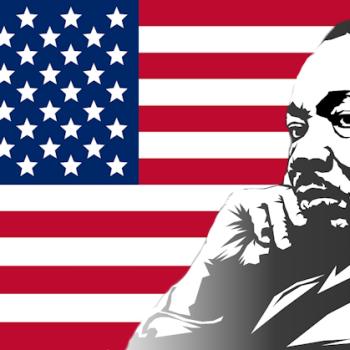THE GREAT DIVIDE
Many divisions exist within our global, human society—within and among religions, among national and political ideologies, among men and women, among rich and poor, among differing cultures—and that's just to name a few. This series of blogs will address one of the most fundamental divisions affecting modern humanity: the division between religion and science. It will also describe a third paradigm, spirituality compatible with the advanced new sciences.
Both religion and science are two branches of human endeavor that deal with the most basic questions of our existence—who we are, where we came from, why are we here, and what is the nature of the world in which we live? Philosophy also deals with these questions, but philosophy is really a bridge or a by-product of these two more fundamental pillars of inquiry into the human condition. The thing is, a sharp divide appears to exist in the way religion and science study and approach these questions so that the average person has to choose between which view is correct.
RELIGION VS. SCIENCE
How do you believe that life started? How is it maintained? Was it all caused by random particle interactions that somehow created increasingly complex organisms and ultimately led to life? Or, do you believe that life and the universe as we know is grounded in a conscious intelligence that pervades creation? Perhaps you're simply confused by the question and just don't know. Either way, your basic convictions about these matters influence the quality of your personal life and the character of our cultures, institutions, nations, and human conditions.
The belief that life is pure random chance—as science says—has led to a certain secular, Existentialist outlook of how you live and conduct yourself. It might cause conscious or subconscious feelings of futility and fear, both of which have consequences for physical and psychological well-being. Of course, believing in God doesn't necessarily immunize you from problems, and people can certainly hold distorted, fearful notions of God. Misguided religious zealots often cause far more damage than morally responsible atheists. So, how can we proceed to a better understanding of life?
Ironically, fear is the common denominator between secularism and religion as practiced in the Western world. It is the fear of not truly knowing at a gut-level that we are part of a continuing whole as opposed to separated, transient specks that might permanently blip out of existence at any time. Fear and religion are commonly equated, but fear and science? Realize that one characteristic of traditional science is that is analyzes parts like the physicians that specialize in hearts, eyes, and bones, rather than looking at the body as an integrated whole. This approach is fragmented, and it promotes a fragmented, fearful view of life in the end.
But a way does exist to transcend the limitations of secular science and traditional religion. It has to do with the practice of acquiring a particular type of knowledge and experience that puts you in contact with a higher intelligence. Such an experience gives you a certainty that you exist within a larger framework than the visible, material world. It opens you to receiving information to help you perceive new patterns in the fabric of life. Such knowledge can guide you to evolve physically, emotionally, and spiritually. It can help you become independent of the beliefs and dogmas of others because it is not based on faith but personal experience. The basis of this knowledge has support in both the new sciences and recovered ancient spiritual traditions. This is a "Third Way," a spiritual path to realms beyond the limitations of materialistic science and traditional religion.
In my next blog, I'll discuss the foundations of traditional religion and traditional science leading to the revelation of a new paradigm for viewing life.
12/2/2022 9:02:28 PM





